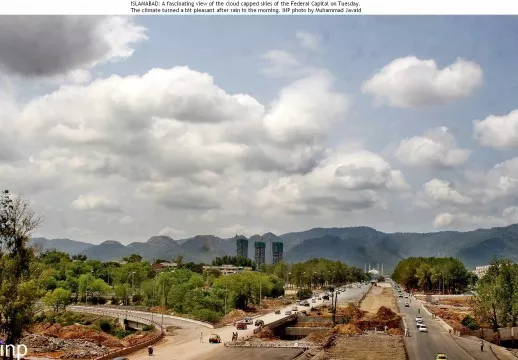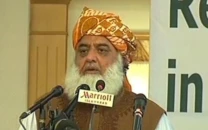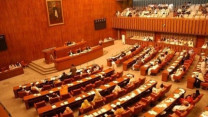Call for climate-resilient Islamabad
Capital's shrinking green cover makes it vulnerable to extreme weather, warn experts

Climate experts, meteorologists, and policy specialists have called for an urgent overhaul of Islamabad's urban planning, emphasising the need for a climate-resilient master plan, stricter enforcement of emissions laws, and a shift in urban development priorities to combat growing environmental vulnerabilities.
Speaking at a seminar hosted by the Sustainable Development Policy Institute (SDPI) on "Abnormal Weather Patterns and Climate Change Impact on Islamabad," participants raised concerns over the capital's increasing exposure to climate shocks, the urban heat island effect, and rapid degradation of green spaces due to unregulated urban sprawl.
Dr Shafqat Munir, Deputy Executive Director of SDPI, stressed the importance of more accessible and effective communication regarding extreme weather events. "We have an early warning system, but the language used needs to be clearer and more actionable. People must understand the gravity of these warnings," he said. Dr Munir also pointed to what he described as a "coalition of the unwilling" — those resisting climate adaptation measures, which he said further weakens Islamabad's climate resilience.
Highlighting vehicular emissions and unchecked real estate development as critical challenges, Dr Munir noted, "Our green belts are disappearing. Housing societies are flouting open space regulations, and our policies often lack cohesion and alignment with ground realities." He linked the recent hailstorm — which primarily affected the city's last remaining green areas — to the consequences of environmental mismanagement.
Dr Shahzada Adnan, Deputy Director and Senior Meteorologist, explained the science behind Islamabad's increasingly erratic weather. "In just two decades, Islamabad's population has grown from 500,000 to 2.6 million. Vehicular traffic has surged, and 36% of the city's forest cover has vanished," he said. Dr Adnan attributed the recent formation of unusually large hailstones to a combination of strong westerly waves, urban heat buildup, and deforestation.
"The urban heat island effect is becoming more intense," he warned. "From record-breaking heatwaves to tropical nights, the city is undergoing a dangerous climatic shift." He also highlighted the risk of a Cape Town-style water crisis within the next 15 years if current trends — including groundwater depletion and flash droughts — continue unchecked.
Dr Adnan shared details of upcoming technological advancements in weather monitoring, such as automated weather systems and a flash flood guidance system, aimed at mitigating risks in vulnerable areas.
Aftab Alam Khan, CEO of Resilient Future International, criticized the trajectory of Islamabad's urban development. "What began as a planned capital has now devolved into chaotic, climate-insensitive growth. The city's green cover has declined by 60%, and its infrastructure is trapping heat rather than reducing it," he said.
Khan urged authorities to enforce tree protection laws, hold housing societies accountable for violations, and initiate district-level climate adaptation strategies




















COMMENTS
Comments are moderated and generally will be posted if they are on-topic and not abusive.
For more information, please see our Comments FAQ